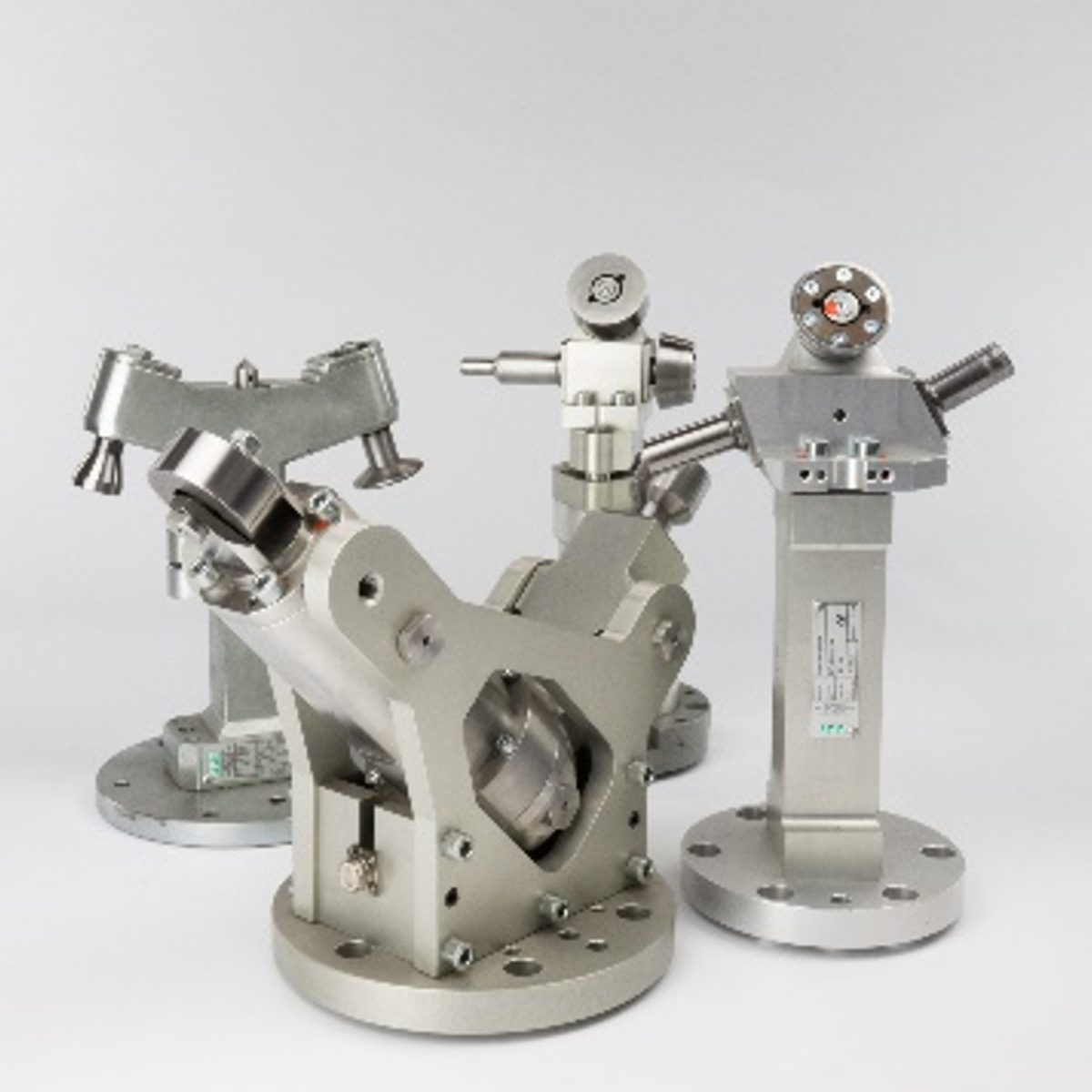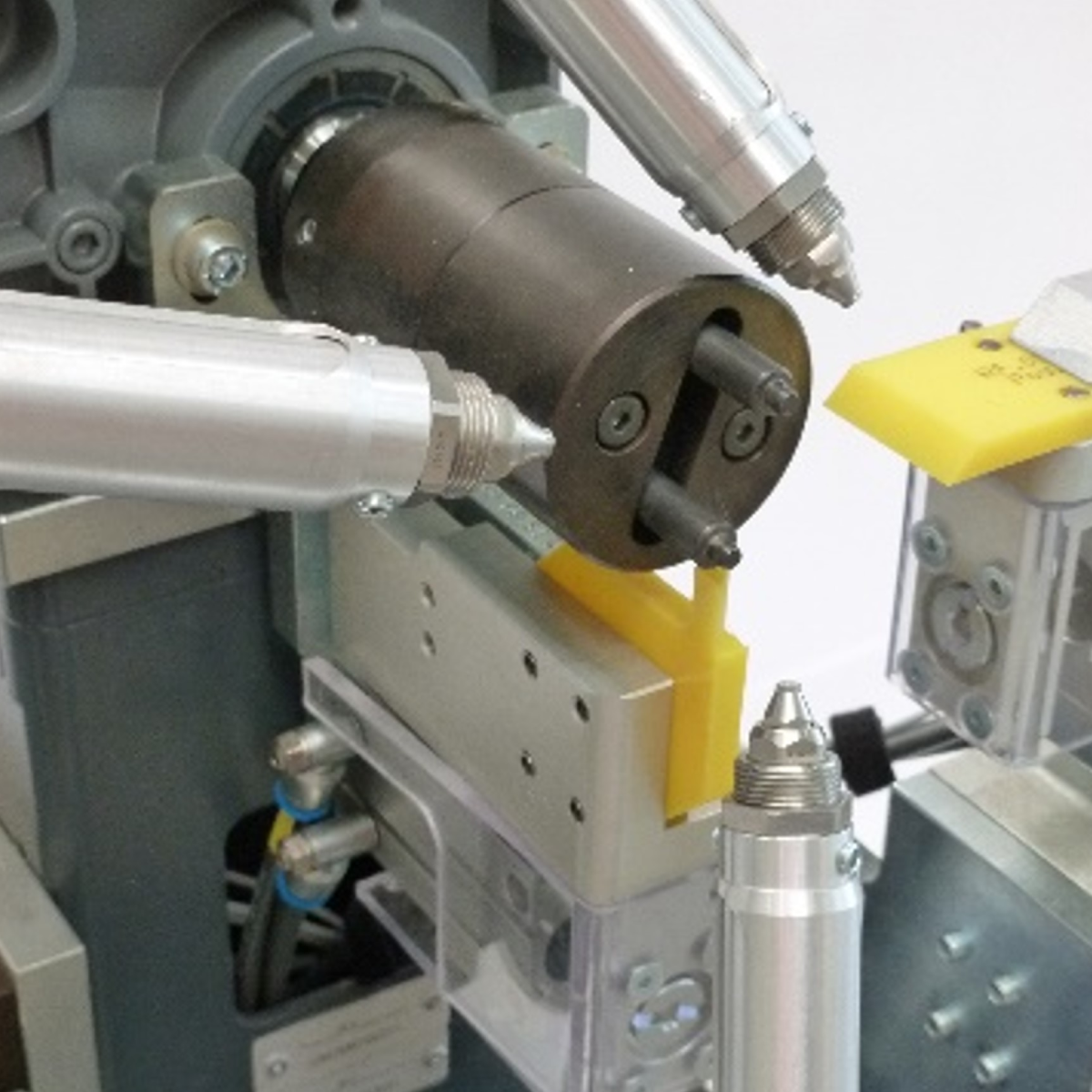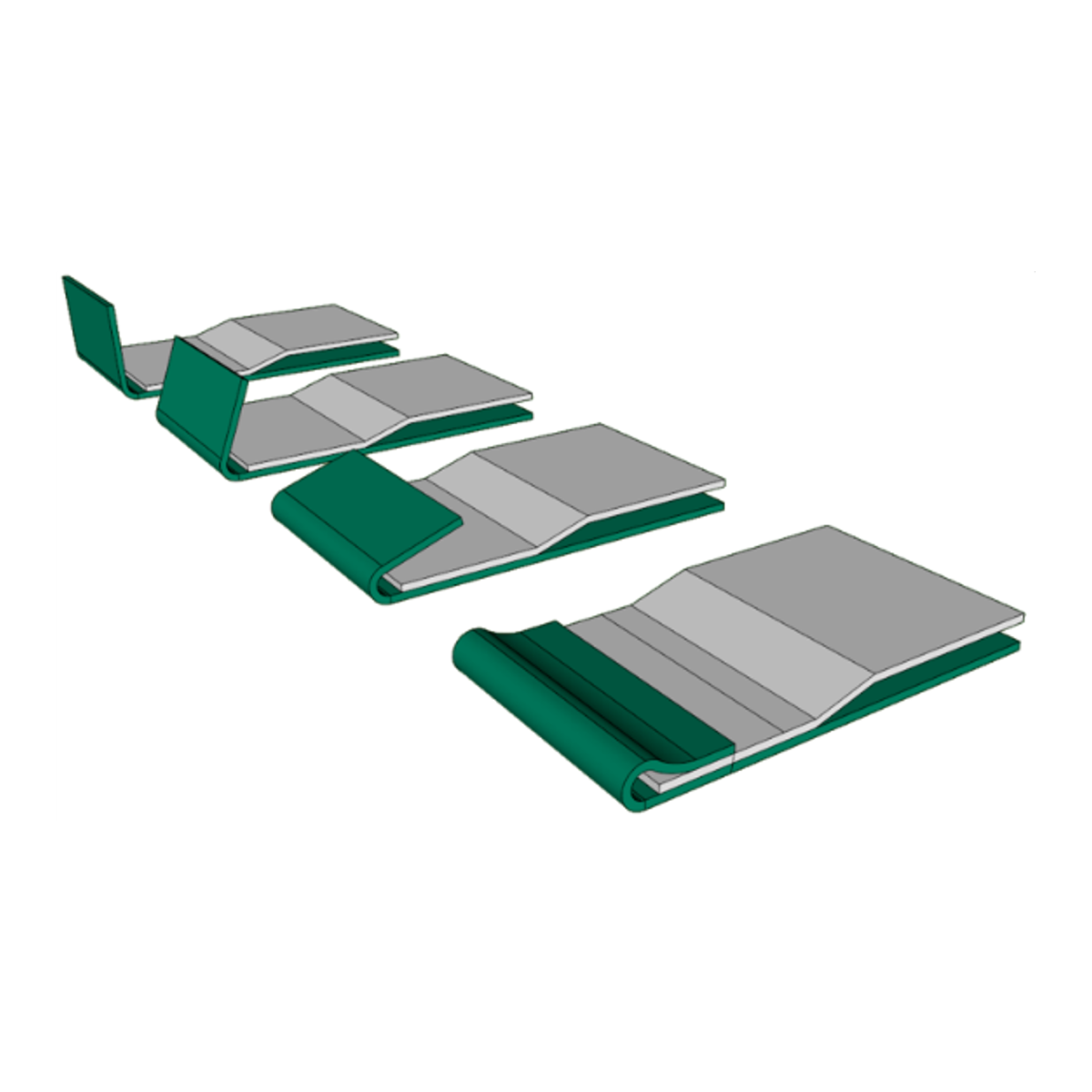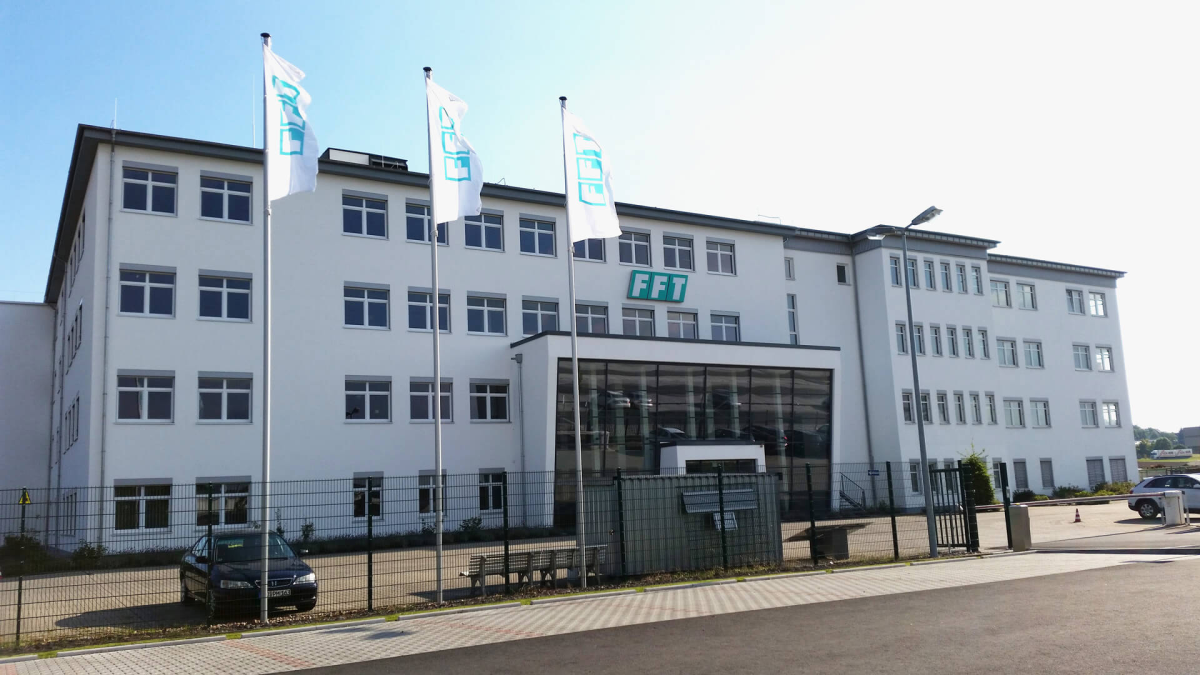State-of-the-art hemming heads

All variants are robot-guided tools consisting of a standardized basic enclosure with integrated load cell and a roller holder for up to three folding rollers.


The production of body components such as doors, flaps, sunroofs and side panels is characterized by the use of various joining and bonding techniques. The hemming technique is considered indispensable in the joining process of inner and outer parts. On the one hand, the seamed joint plays an important role in corrosion protection, while on the other hand it improves the rigidity of the body components.
In the past, seams on body panels were produced exclusively by stationary seaming machines known as "table-top" machines. Forming tool jaws create the seam. This is a very reliable but rigid process. An alternative is the use of roller hemming systems. This uses a robot-guided tool equipped with a so-called folding roller. The degrees of freedom provided by the industrial robot make the hemming process very flexible.
In times of increasing variety, flexible production systems and services in the field of roller hemming and machine hemming technology are increasingly in demand.
We cover the entire process chain from folding method and concept to design, implementation, quality and after-sales.
Click here for FFThemtec products
In order to join different parts together, they need to be bent. products used in a variety of applications

All variants are robot-guided tools consisting of a standardized basic enclosure with integrated load cell and a roller holder for up to three folding rollers.
![[Translate to Englisch:] Integrierte Falzsysteme [Translate to Englisch:] Integrierte Falzsysteme](/fileadmin/images/kompetenzen/technologien/Falztechnik/Integrierte_Falzsysteme_1200x1200.jpg)
You can use our systems for prototyping, pre-series, small series, and serial production. They can be operated manually or automatically.

During hemming, various parameters have to be monitored or rolls cleaned or checked if necessary. For this purpose, FFT has developed special accessories to round off the range.

Folding generally involves joining two components by forming a flange. The joining technique involves bending the edge of thin-walled sheets 90 degrees to form an envelope. Further folding, known as hemming, allows sheets to be joined with a positive fit.
For optimum quality, folding is performed in several steps.

More than 15 years of experience have made us the market leader in robotic hemming heads. Whether for hanging or attaching parts, our product solutions provide maximum flexibility and quality in our customers' automated production lines. Some hemming heads even enable efficient two-step hemming in a single robot movement.
In counter-roller hemming, one roller performs the forming while the second roller absorbs the resulting force. The counter-roll principle results in a closed hemming force curve. There is no need for an expensive folding bed as a counter support.
![[Translate to Englisch:] Robotergeführte Falzköpfe Robot-guided hemming heads](/fileadmin/images/kompetenzen/technologien/Falztechnik/Robotergef%C3%BChrte_Falzk%C3%B6pfe_1200x1200.jpg)
Complete hemming systems are used whenever special geometries pose a particular challenge. In the automotive industry, this is often the case with wheel arches and doors, but also with panoramic or sliding roofs.
Here, our manual, pneumatically assisted or fully automatic solutions are used to handle these tasks without any problems. A special feature here is the FFThemtec 180°, which can even produce a 180° seam.
![[Translate to Englisch:] Integrierte Falzsysteme Integrated hemming systems](/fileadmin/images/kompetenzen/technologien/Falztechnik/Integrierte_1200x1200.jpg)
The FFThemtec roll cleaning system allows automatic cleaning of hemming rolls without interrupting the automatic process. For the cleaning process, the robot moves the hemming roll in front of the drive element. At this point, the roll is wetted with a minimal amount of oil and the adhesive is removed by a scraper.
In addition to this system, FFT is constantly developing other equipment, such as the current FFThemtec HemQC Force tool for monitoring fold quality and accuracy, in order to continuously improve it.
![[Translate to Englisch:] Zubehör und Komponenten Accessories and components](/fileadmin/images/kompetenzen/technologien/Falztechnik/Zubeh%C3%B6r_800x800.jpg)


Carsten Heil
Mobile: +49 151 5284 7845
Mail: Karsten.Heil(at)fft.de

Oliver Kurz
Mobile: +49 151 1679 4161
Mail: Oliver.Kurz(at)fft.de